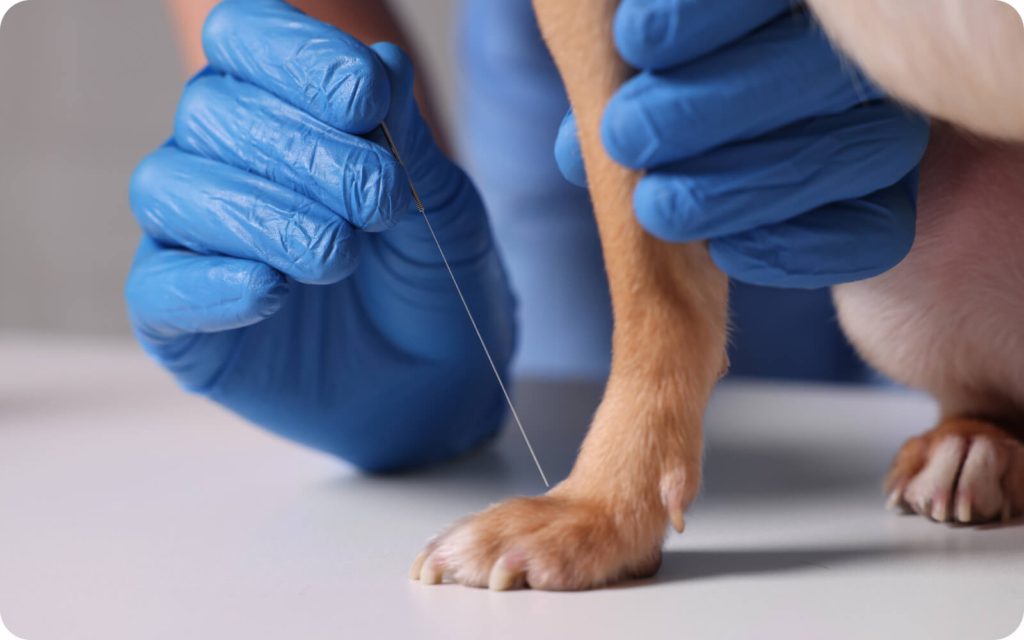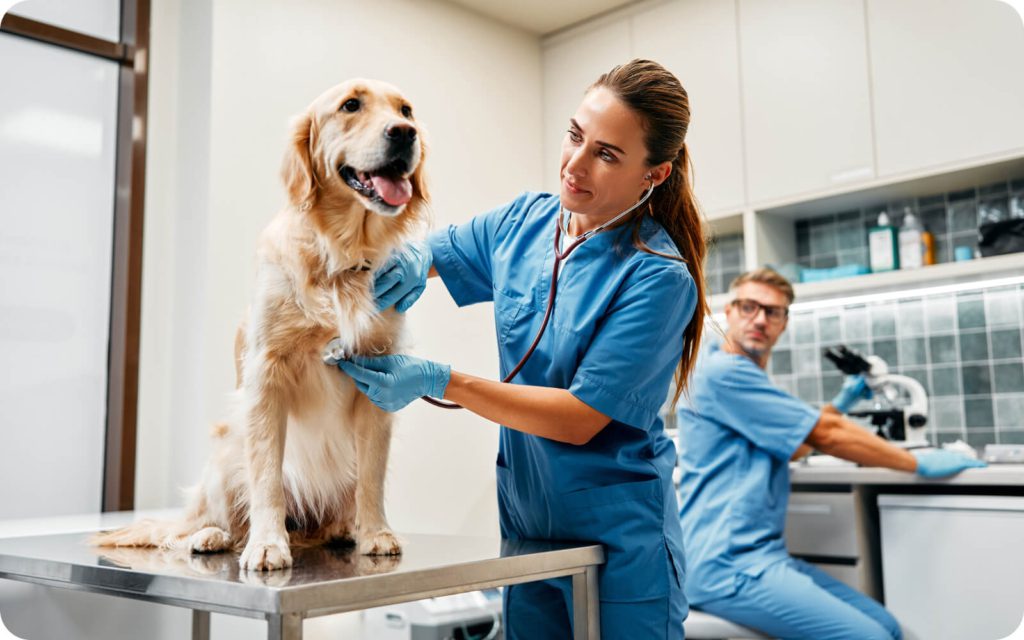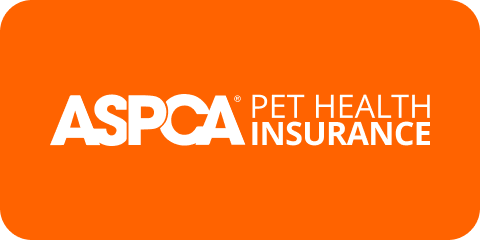The ASPCA® Pet Health Insurance program has been the ASPCA®’s exclusive pet insurance partner since 2006, and provides coverage for dogs and cats.
ASPCA® Pet Health Insurance offers three pet insurance plans. Its Complete Coverage policy is their most comprehensive plan available, providing coverage for a range of accidents and illness. Accident Only is its accident and emergency pet insurance plan — coverage for illnesses are not included with this.
Preventative Care is ASPCA® Pet Health Insurance’s optional wellness plan, which can be added as an extra to either main pet insurance plan. It can’t be purchased on its own.
Pet insurance made easy!
Compare the top pet insurance brands of 2025

What does an ASPCA® Pet Health Insurance plan help cover?
The Complete Coverage insurance plan helps provide coverage for expenses related to a variety of eligible accidents and illnesses, including chronic health conditions. That includes:
-
Accidents
Treatment for minor injuries caused by an accident, right up to major issues — fractures, broken bones, burns, poisoning, complications from swallowing objects and more. -
Cancer
Coverage for canine and feline cancer, from diagnosis to treatment options — including chemotherapy and radiation therapy. -
Long term illnesses
Chronic illnesses that require long-term management and treatment; such as arthritis, hypothyroidism and diabetes, may be included. -
Hereditary and Congenital Conditions
Some breeds can be more at risk of developing certain conditions based on genetics, including heart diseases and intervertebral disc disease (IVDD). -
Dental illnesses and injuries
Complete Coverage can help cover the costs of treatment for eligible dental diseases — such as the common periodontal disease — and accidents, including tooth extractions. -
Surgery and hospitalization
Coverage for eligible surgery and hospitalization expenses, resulting from unexpected accidents or illnesses. Includes X-rays, MRI scans and CT scans.
Additional pet insurance coverage from ASPCA® Pet Health Insurance program
-
Emergency Care
Eligible expenses for urgent and emergency care, can include medical supplies — casts, bandages and splints — medications and Intravenous (IV) fluids -
Behavioral issues
Diagnosis and treatment for eligible expenses for a range of issues, including destructive chewing, barking, excessive licking and more could be covered. -
Complementary and alternative treatments
Expenses related to a range of less invasive treatments to help treat and manage conditions may be covered. Includes physiotherapy for injury rehabilitation and recovery. -
Training
Expenses related to behavior modification training for dogs and cats, provided by an approved professional and by vet referral. -
Prescription medication and food
Coverage for prescription medication as prescribed by a veterinarian — and for food and any supplements recommended by a vet to help treat a covered health condition. Does not include prescription food for general health maintenance or prevention, including weight loss. -
Microchipping
An ASPCA® Pet Health Insurance policy includes the cost of microchip implantation by a veterinarian; does not include associated fees for registration or monitoring.
Are curable pre-existing conditions covered?
ASPCA® Pet Health Insurance may provide coverage for some curable pre-existing conditions, in certain circumstances, but many pre-existing conditions will be excluded from any coverage.
Pre-existing conditions are those that a pet has been diagnosed with prior to taking out a pet insurance policy or which occur during a waiting period. A diagnosis isn’t always required — if your pet has been displaying symptoms of a condition and noted by a vet, but not officially diagnosed, it may still be recorded as a pre-existing condition by an insurer.
Pet insurance companies may have different positions on pre-existing conditions, so do check with your chosen insurer for more details and information.
Curable
ASPCA®’s Pet Health Insurance will extend coverage for a pre-existing condition if it’s curable, cured and free of symptoms and treatments’ for 180 days. Knee and ligament conditions aren’t included in that. Vomiting and diarrhea, are examples of curable pre-existing conditions.Incurable
Incurable pre-existing conditions are typically those that are considered chronic, long-term and without a cure. Examples include, but are not limited to cancer, arthritis, diabetes, heart disease, kidney disease allergies, and hip dysplasia. If your pet had any of these health problems before taking out an ASPCA® Pet Health Insurance policy, coverage won’t be available. Review a sample policy for a full list of exclusions.
Does ASPCA® Pet Health Insurance cover cancer?
ASPCA® Pet Health Insurance helps provide coverage for your pet for eligible expenses related to cancer treatment — providing you have Complete Coverage (it’s not covered by the Accident Only policy) and that the cancer diagnosis isn’t pre-existing. If your pet was diagnosed with cancer prior to taking out insurance, they won’t be covered for treatment.
Cancer-related expenses (like chemotherapy and radiation treatment) are typically included in coverage. Surgery and hospitalization expenses are also covered, as well as initial examinations, tests and consultations with a veterinarian to diagnose cancer. If your vet refers your pet to a licensed specialist — typically an oncologist with a cancer diagnosis — eligible expenses may be covered, too.
Common cancers in pets include lymphoma, osteosarcoma, melanoma, hemangiosarcoma and mast cell tumors.
Pet insurance made easy!
Compare the top pet insurance brands of 2025

What about hereditary and genetic breed-specific conditions?
A hereditary or genetic condition is a type of birth defect that can affect puppies and kittens. Some pets may be affected at a young age, others won’t show any symptoms until later in life — these are called congenital conditions. Certain breeds are more predisposed to genetic health issues, which is why screening by breeders is so important.
Common genetic conditions include heart disease, patellar luxation, hip and elbow dysplasia, eye disorders and intervertebral disc disease (IVDD). Genetic and congenital conditions may be covered by the Complete Coverage℠ plan, that helps cover accidents and illnesses.

Do ASPCA® Pet Health Insurance plans include alternative therapies?
Alternative therapies can help pets to recover from injury and illness, and might be recommended by a vet as a treatment option instead of conventional medication. For example, if you have a senior dog that may not cope well with surgery, an alternative therapy could be a good option.
There are a wide range of alternative therapies available for dogs and cats. The Complete Coverage℠ insurance plan helps cover expenses for alternative treatment when it’s for a covered condition.
Covered alternative therapies can include physiotherapy, acupuncture, chiropractic manipulation, massage, osteopathy, hydrotherapy, homeopathy and laser treatment.

Is there 24/7 pet telehealth?
Yes — policyholders have access to 24/7 telehealth services. This is provided by The Vet Connection, which uses vets and vet nurses to provide advice to worried pet parents.
If you have an ASPCA® Pet Health Insurance policy, you can gain access to 24/7 telehealth services via the Member Center, which allows you to manage your account online. You can also download the ASPCA® Pet Health Insurance app. Here, you can submit and track any claims, manage your account and check coverage benefits as well as contact veterinary support 24 hours a day, seven days a week.
Are vet exam fees covered?
Vet exam fees are part of the coverage included with an ASPCA® Pet Health Insurance policy when diagnosed with a covered condition. Policyholders can then claim for expenses incurred by vet examinations and consultations, relating to the diagnosis of a covered condition. This might include expenses for X-rays, CT scans and MRI scans.
If you have accident-only coverage, you won’t be able to claim for any exam fees relating to an illness diagnosis though.

ASPCA® Pet Health Insurance coverage levels
ASPCA® Pet Health Insurance offers a choice of annual coverage limits, so policyholders can customize their plan to suit their budget. The coverage limits start from $2,500 and go up to $10,000; this is the maximum total claim a pet parent can make every policy year. If you prefer a pet insurance policy with unlimited annual coverage, though it may be unavailable at sign up, call ASPCA Pet Health Insurance to discuss.
There are three annual deductible levels to choose from — $100, $250 and $500. The deductible is the annual contribution a policyholder pays towards claims, so the higher the deductible is, the lower the premium price is likely to be.
ASPCA® Pet Health Insurance waiting periods
A pet insurance waiting period is the period of time between taking out a policy, and when coverage begins. This means coverage doesn’t start immediately; any condition that occurs during the stated waiting period is considered a pre-existing condition.
ASPCA® Pet Health Insurance has a 14-day waiting period that applies to diagnosis, treatment and surgery that relates to accidents and illnesses. The 14-day waiting period also applies to knee and ligament conditions — which is significantly shorter than some other pet insurers.
Waiting period can vary from state to state, so please review your policy for waiting period in your state.
What does ASPCA® Pet Health Insurance not cover?
ASPCA® Pet Health Insurance doesn’t cover everything — no pet insurance provider does.
In addition to pre-existing conditions, ASPCA® Pet Health Insurance won’t pay for costs associated with such things as:
- Boarding
- Breeding and pregnancy
- Cosmetic procedures
- Non-medical supplies
- Funeral costs
- Supplements for weight loss
- Grooming
- Illness or injury due to negligence or malicious intent by a pet parent, household member or caregiver of a pet
For the full list of what’s excluded from ASPCA® Pet Health Insurance coverage, check your policy details.

Reviews about ASPCA® Pet Health Insurance 1
‘Great for my old boy’
‘My elder dog had a medical emergency that required hours of intervention. I submitted a big claim to ASPCA insurance. Within 6 days I received the payment. I’ve had this insurance for years and always appreciate their quickness and payment for medical expenses.’
Mia
‘Grateful!’
‘I unexpectedly paid thousands of dollars in a few days for my dog to have emergency care. I submitted my claims as soon as possible, and within a couple of weeks was reimbursed. The money went directly into my account and it could not have been easier!’
Megan
‘Easy claim process!’
‘What an easy claim process! I submitted claims for our three cats’ regular veterinary check ups and received updates and the claim funds back in a very reasonable amount of time. The process was simple and easily submitted the claim through the app, uploaded my vet invoices and voila, all done! For our three cats to have comprehensive coverage it’s about $123/month, which is very reasonable and gives us a peace of mind knowing they are covered for illness and injuries.’
Tiffany
ASPCA® Pet Health Insurance FAQs
-
It does. Like some other pet insurers, a 10% multi-pet discount is available on each additional pet you get a policy for. Welcome news if yours is a household with more than one pet.
-
Yes. The Complete Coverage℠ pet insurance plan, as well as the Accident only plan, allows policyholders to visit any licensed vet, specialist or emergency veterinary clinic in the USA or Canada. So, pet parents can continue to use their existing vet — and visit any licensed vet if they need support when traveling with their dog or cat.
-
No. Some pet insurance providers may offer coverage to pets under a specified age, or limit the coverage available to older pets. But there are no upper-age restrictions with an ASPCA® Pet Health Insurance plan.
-
Wellness coverage is offered as an extra policy alongside a core insurance plan. Called Preventative Care, this helps provide coverage for routine care, such as flea and tick medication, vaccinations, dental cleaning and heartworm prevention.
Preventative Care is available in two different coverage options – Basic and Prime. Each has a list of coverage services and a maximum annual benefit amount that can be claimed for. -
The Complete Coverage℠ plan helps cover treatment for eligible expenses related to dental accidents and dental illnesses. This includes periodontal disease, gingivitis, tooth abscesses, tooth extractions, cancerous oral growths, stomatitis and more.
With Accident Only, your pet won’t be covered for any dental illnesses.
Routine dental cleaning is only covered if you have a Preventative Care plan. -
When the time has come to say goodbye to your pet, ASPCA® Pet Health Insurance program helps provide coverage for the cost of expenses for euthanasia, burial and cremation. Funeral expenses and other associated costs such as urns and caskets aren’t covered though.



